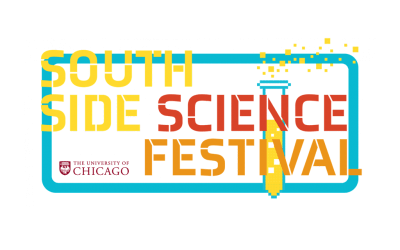From encouraging toddlers’ natural curiosity to giving high school students access to laboratory tools and experiences, STEM appreciation and understanding can be fostered at any age.
EXPLORE STEM PROGRAMS
By connecting math, science, technology, and engineering to real-world phenomena, we can help make STEM fun and interesting for students of all ages.
Pre-K

K–5

6–8

9–12

College

Educators
& Parents

Most STEM Community Education & Engagement programs listed on this site are tuition-free. Programs that do charge tuition also offer financial aid for families in need. Financial aid inquiries should be directed to the individual programs.
Today’s kids are growing up in a time when technology and scientific discovery are advancing at a rate we’ve never seen before. Building an understanding of science, technology, engineering, and mathematics (together known as STEM) will not only prepare them for the future, but also allow them to contribute to these advancements.
With that in mind, we want to share the knowledge, discoveries, and resources we have at the University of Chicago with our local community and beyond. Our STEM-focused programs are meant to excite, educate, and mentor kids from preschool all the way to college, as well as help us support fellow educators and educational institutions.
NEWS & EVENTS
South Side Science Festival
The University of Chicago invites you to explore the fascinating world of science at the first annual South Side Science Festival, held on Saturday, September 17, 2022, from 11:00am until 6:00pm, at the UChicago Science Quads. This free festival will bring together...
Urban Health Initiative: High School Health Care Career Panel
Do you know what it takes to be a Doctor, a Nurse, or how to get into the Healthcare field? Join UChicago Medicine's panel of Healthcare experts and learn what you need to succeed! May 7th, 2022 10:00 a.m. - 12:00 p.m. Virtual Event Chicago, IL RSVP
Earth Day 2022: UCSC Invests in Chicago
In honor of Earth Day, UCSC will host a two-day event to advance environmental justice. First, on Earth Day itself (Friday, April 22nd), we’re excited to convene a panel conversation about pathways forward in sustainability and environmental justice. Details, with...
What is STEM?
STEM is an acronym that represents science, technology, engineering, and mathematics. While these topics can also be taught separately, many STEM programs integrate these disciplines using real-world applications and hands-on learning.
STEM subjects are defined by the National Research Council as:
- Science is the study of the natural world, including the laws of nature associated with physics, chemistry, and biology, and the treatment or application of facts, principles, concepts, or conventions associated with these disciplines.
- Technology comprises the entire system of people and organizations, knowledge, processes, and devices that go into creating and operating technological artifacts, as well as the artifacts themselves.
- Engineering is a body of knowledge about the design and creation of products and a process for solving problems. Engineering utilizes concepts in science and mathematics and technological tools.
- Mathematics is the study of patterns and relationships among quantities, numbers, and shapes. Mathematics includes theoretical mathematics and applied mathematics.
Why is STEM important?
When children have early access to quality, hands-on STEM learning opportunities, they do better in school, not just now, but for the long term. STEM education can help teach students to solve problems, to make sense of information, and to gather and evaluate evidence for decision-making—skills that are useful throughout our lives and in any profession.
To help broaden representation in STEM careers, we need to make sure not only that every student is taught these subjects, but also they are introduced to and given access to those careers.
Outside of these career opportunities, the understanding of STEM is critical to understanding many important topics that affect us all, including infectious diseases, pollution, climate change, clean water access, renewable energy, and cybersecurity.
STEM Community Education & Engagement: mission and goals
Our programs aim to leverage the scientific knowledge and resources of the University of Chicago to advance STEM education and engagement in local communities and beyond in order to better position the region as a source for tomorrow’s leaders in science, technology, engineering, and mathematics. We do this in partnership with our national and affiliated laboratories, with educators in local schools, and with members of our surrounding communities.
We are guided by five overarching goals:
- To advance STEM education and engagement through a range of opportunities that are based in active learning and that connect mathematics, science, technology, and engineering to real-world phenomena. Our programs are intentional, successive, and grounded in the needs and priorities of Chicago students, families, teachers, and schools.
- To expand access to STEM knowledge and discoveries by emphasizing public engagement as an essential part of STEM professional practice, by sharing relevant UChicago tools and resources, and by critically engaging patterns of bias and inequality in STEM education.
- To prepare the future STEM workforce by fostering lifelong STEM interest and engagement, and by facilitating awareness of and access to STEM careers at all levels—particularly within underserved and underrepresented communities.
- To cultivate STEM leadership and expertise by purposefully empowering educators: local teachers through professional development opportunities, UChicago students and postdoctoral researchers through teaching and mentoring opportunities, and UChicago researchers broadly through workshops in such areas as science communication and cultural responsiveness.
- To foster University of Chicago STEM connections across the city of Chicago and beyond by building long-term, mutually beneficial relationships with partners in local schools, community organizations, and not-for-profits, and by leading exchanges across educational institutions, industry, and government for community improvement and impact.
University of Chicago sites for STEM Community Education & Engagement
- Astronomy & Astrophysics Outreach
- Biological Sciences Division Pathway Programs
- Chicago Materials Research Center
- Chicago Quantum Exchange
- Committee on Evolutionary Biology
- Comprehensive Cancer Center
- Data Science Institute
- Fossil Lab
- Institute for Mathematical and Statistical Innovation
- Pritzker School of Medicine
- Pritzker School of Molecular Engineering Educational Outreach
- UChicago STEM Education
- University of Chicago School Mathematics Project






